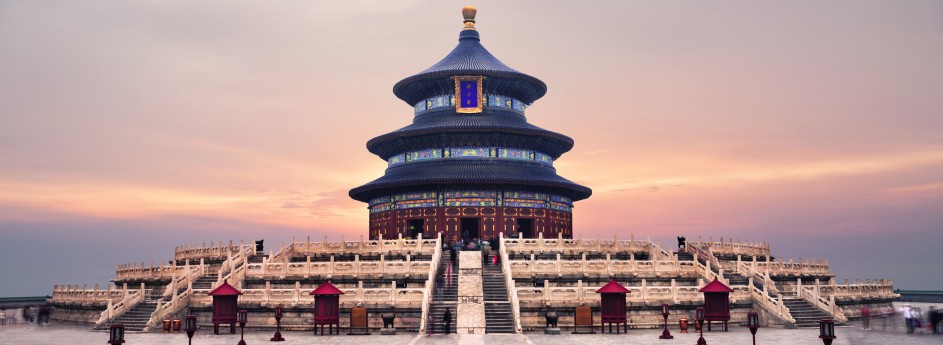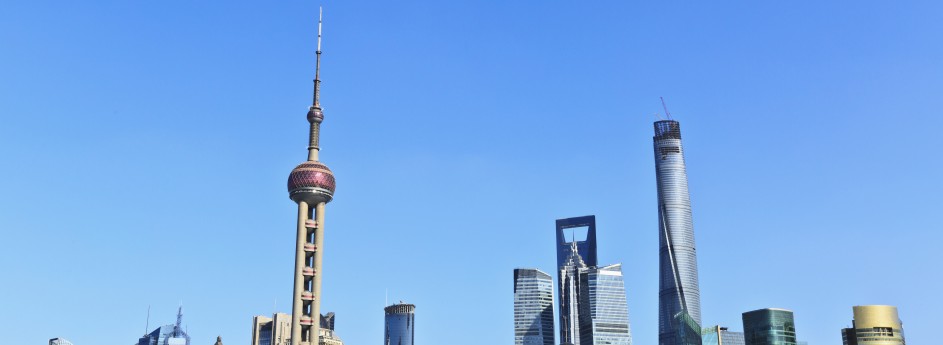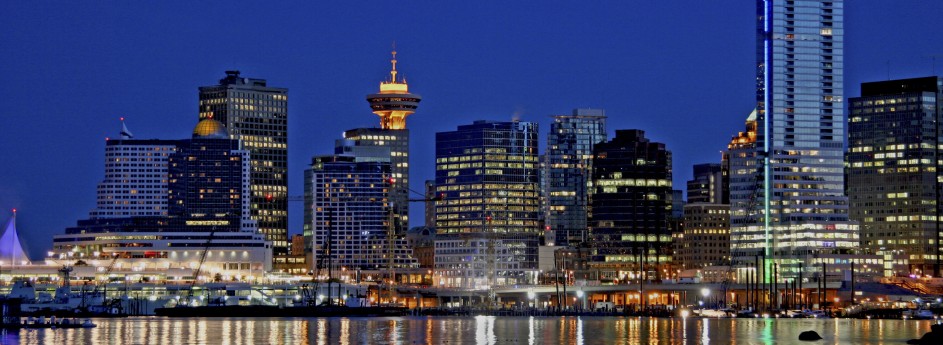The (British) Empire is No More: Guardian commentator
The Western, especially British, press has been in a knot over the non-visas for British MPs wishing to “investigate” the handling of dwindling Hong Kong student protests. But, Guardian commentator Mary Dejevsky, in stark terms, reminds Britons Hong Kong is no longer a colony and that Britain should know its diminished place in the international political-economic pecking order. So, get a grip Brits, the empire is long gone!
…Some have argued that in banning the British MPs, Beijing is not only reminding Hong Kong who is boss, but acknowledging the UK’s continuing influence and standing. According to this logic, a bunch of high-minded MPs is too dangerous to be let loose in the former colony. The opposite, I fear, is true.
Beijing feels it can swat away what it sees as a minor irritant at no cost to itself – reputational or economic. The UK is neither a major trading partner nor, in China’s eyes, a diplomatic heavyweight. The Westminster parliament can huff and puff, but – as visits to China by the prime minister, the chancellor and the mayor of London all show – we need them more than they need us.
The harsh truth is that for all practical purposes, the UK’s influence in Hong Kong died as the royal yacht sailed away. Thereafter, “one country two systems” meant only what Beijing was prepared to let it mean – and as much as Hong Kong, with its commercial clout, was able to insist.
The UK can, and should, treat democracy-minded envoys from Hong Kong with the respect they deserve. But if there is to be political change there, it is the people of Hong Kong who must press their case – as, perhaps, a new generation is starting to do.
In the light of this, some of what Ottaway told the BBC in response to the ban was simply abject. He said, among other things, that he and his colleagues would have “refrained from making any public comment while there”. (Er, they would clam up to save China’s face?) Then he suggested that the visit, “far from doing damage, would help in raising understanding of … the UK’s legitimate interest in Hong Kong’s future”. Oh dear, oh dear.
When will the penny finally drop? Hong Kong as a British colony is no more. The UK has no “legitimate interest” there beyond a natural concern for human rights. Its MPs can go around the world advocating “values” but they have no special hotline to Beijing, and any preaching about “democracy and the rule of law” from the former colonial power is unlikely to convince.
The UK may have a particularly guilty conscience about Hong Kong – as indeed it should have. But if it wants to influence what happens there, staking a claim to almost proprietorial privilege is not the way. Indeed, if Zimbabwe, South Africa or Kashmir are any sort of precedent, attempts to lay down the law as the former colonial power only fuel resentment.
The British empire is over. For a medium-sized country, the more productive course is to seek allies, and for the UK the ideal source of support over Hong Kong is the EU, whose economic clout at least is more equal to Beijing’s. As so often, too, a little more self-knowledge would not go amiss. It is not only Russia that finds it hard to let go.
The full piece can be read at: http://www.theguardian.com/commentisfree/2014/dec/01/britain-hong-kong-no-longer-colony-empire-china#start-of-comments
Mahbubani is Right on the Money on Asia and China
Kishore Mahbubani, former long-serving diplomat and Permanent Secretary at the Singaporean Foreign Ministry, briefly as the President of the UN Security Council during a stint as Singapore’s Permanent Representative to the UN, and now Dean of the Lee Kuan Yew School of Public Policy at the National University of Singapore, has been right on many issues concerning the rise of Asia and his views on China are also spot on. He authored The Great Convergence: Asia, the West and the Logic of One World and is a member of the World Economic Forum’s Global Agenda Council on China.
Here are some excerpts (further condensed) from a recent keynote address at the Straits Times Global Outlook Forum: (This author particularly appreciates his exhortations against swallowing the ideological tenets and mantras of the Western media although not so sure the Singapore Straits Times (for which this author has worked) is the best positioned to become the voice of Asia as he asserts.)
Asia will experience a new golden era of peace and prosperity over the next 10 years.
The export-led growth model of the past will no longer work for the major Asian economies. Hence, we are unlikely to see a return to double-digit growth. If the major Asian economies, especially China, India and Indonesia, are able to maintain growth rates of around 7 percent a year, this will be a major achievement. Fortunately, this is within their reach.
Three factors will drive this. – The first factor is an almost unbelievable accident of history. It is truly remarkable that the three most populous Asian countries, namely China, India and Indonesia, have simultaneously put in place dynamic and reform-minded leaders who can be expected to transform their countries over the next decade.
– The second factor is the consolidation of the “Deng Xiaoping-Lee Kuan Yew consensus” on national development. We have just seen three remarkable back-to-back leaders’ meetings in East Asia: APEC in Beijing, East Asia Summit in Naypyidaw and the Group of 20 in Brisbane. An amazing number of new agreements were signed.
There was also a historic (albeit unsmiling) handshake between President Xi Jinping of China and Japan’s Prime Minister Shinzo Abe, laying to rest fears of a China-Japan war. What was the key underlying factor that explains the success of these meetings?
The simple answer is that, North Korea excepted, there is a remarkably wide and deep consensus among regional leaders that they should focus on modernization and pragmatic development. This explains why East Asia is functional while the Middle East remains dysfunctional. Our region has been infected by a silent, healthy virus of modernization. Because it is silent, the Western media has not noticed and continue to predict doom.
– The third factor is the explosion of the Asian middle-class population from 500 million in 2010 to 1.75 billion in 2020. Multinational corporations have spotted this trend. Many of these MNCs are ahead of their governments and have stepped up their presence in the region. Singapore has the potential to be the biggest beneficiary of this big shift to Asia.
Pessimistic Western consumers will not drive global demand. Instead, optimistic Asian consumers will gradually pick up global demand. It would be foolish to pretend that all will be rosy in the region.
Several geopolitical clouds will continue to affect the region. Five deserve mention.
BUT THERE ARE CLOUDS
The most important geopolitical relationship is always between the world’s No. 1 power (now the U.S.) and the emerging No. 1, now China. In theory, U.S.-China relations should hit a new peak of rivalry in the next decade, because, this year, China will surpass the U.S. and become the world’s biggest economy in purchasing power parity terms.
Curiously, the U.S.-China relationship is remarkably stable. Indeed, there is even some sun showing through what should be the darkest geopolitical cloud, as demonstrated by the extraordinary climate change agreement reached between Mr. Xi and U.S. President Barack Obama.
The most dangerous relationship this year was that between China and Japan. Many feared that they would go to war. Instead, they shook hands. If Mr. Abe can restrain his nationalistic tendencies and focus on firing economic arrows to jumpstart Japan’s economic growth, this troubled relationship can remain under control. Several Chinese leaders may have also realized that China went overboard in browbeating Japan in recent years.
The most important future geopolitical relationship is between the world’s next No. 1 and No. 2 economies, namely China and India. When Mr. Narendra Modi became prime minister of India, there was hope of a major breakthrough. However, the border issue continues to bedevil this relationship. The world will look upon Mr. Modi and Mr Xi. to wisely overcome this nagging issue.
Logically, Russia should have been drifting closer to Europe and the West to balance a rising China. Instead, the opposite has happened. The accident in Ukraine disrupted geopolitical logic. If Western leaders were as pragmatic as Asian leaders, they would have found a compromise.
Instead, the West went back to its usual self-righteous tendencies and imposed sanctions on Russia. This geopolitical loss by the West has been a gain for Asia, as seen by the U.S. $400 billion (S$520 billion) Russia-China energy deal.
Finally, the Islamic State group emerged as a complete surprise. It would have been ignored if innocent Westerners had not been killed. The decapitations forced the West, especially the U.S., to react. However, ISIS does not pose a great global threat. It is an isolated tumor.
DON’T BELIEVE THE ANGLO-SAXON MEDIA
To understand how these five geopolitical clouds will affect Asia, please do not rely on the dominant Anglo-Saxon media. Some of their editors are trapped in a narrow and often ideological Anglo-Saxon mental universe. For example, the Anglo-Saxon media has been predicting the collapse of the Chinese Communist Party for almost 25 years. I predict that they will continue to do so in the next 10 years. I also predict that the CCP will last the next 10 years.
There is a great global demand for an authoritative voice on Asia’s resurgence. When the British Empire reigned supreme, the Times of London served as the newspaper of record. When the American century began, the New York Times emerged as the newspaper of record.
As the Asian century unfolds, The Straits Times is well poised to be the newspaper of record for the Asian century. Fortunately, The Straits Times already has a group of excellent Asian correspondents in place. It has the product. All that the ST has to do is to create a new package of news on Asia for the rest of the world.
Further excerpts, on the role of ASEAN, can be read on: http://www.huffingtonpost.com/kishore-mahbubani/asia-golden-era_b_6219866.html?utm_hp_ref=world
ADB Willing to Work With AIIB: ADB President Nakao
Despite naysayers and China poopers arguing the Asian Development Bank (ADB) must not collaborate with the newly founded China-led Asian Infrastructure Investment Bank (AIIB) for a plethora of ‘issues’ and ‘concerns’, it looks like the ADB is gearing up to hop on the bandwagon. The South Koreans and the Aussies are on the verge of joining (albeit the latter wanting some assurances on governance etc.) and World Bank President Jim Yong Kim said he’s gung-ho on cooperation. So, it looks like the China-bashers will be eating some bitter words in the offing!
The head of the Asian Development Bank said Wednesday he is ready to work with China on a new infrastructure investment bank proposed by Beijing, despite fears it could undermine his institution.
The Manila-based ADB is too large and established to be threatened by the proposed lender, Takehiko Nakao told a foreign correspondents’ forum in the Philippines.
“If the AIIB (Asian Infrastructure Investment Bank) is established, we are very happy to have the appropriate collaboration,” Nakao said, adding the banks could potentially co-finance projects.
Last month China and 20 other Asian countries signed a memorandum of understanding to establish the AIIB, an institution whose development has been driven by China and which will be based in Beijing, according to the Chinese state news agency Xinhua.
However the proposed lender is seen as a potential rival to existing Western- and Japanese-dominated institutions such as the World Bank and the ADB.
The Japanese government has expressed concern, while the United States is reportedly fiercely opposed to the AIIB, which some analysts see as a venue to expand Chinese influence at their expense.
Nakao stressed there had been “no contact” yet between the ADB and the AIIB, although Chinese officials had discussed the matter with him when he was in Beijing.
He added that it was “understandable” that Asian countries would want such an institution because of the region’s huge need for infrastructure financing.
He said Asia needed $800 billion a year in funding for infrastructure, particularly for energy and ports. Of the 20 other countries that signed the AIIB memorandum, only India and Singapore are considered large economies.
However Nakao stressed that the ADB had always been active in infrastructure, even as it also supports social services as part of its mission of poverty-reduction.
“The ADB’s focus has always been infrastructure,” he said. “China has always been very supportive of the ADB so Chinese authorities have been saying (the AIIB) will be complementing and supporting the work of the ADB instead of challenging and going to be a rival,” he added.
“There is no real issue about it. We can work with the Chinese authorities and the new bank if they do regional cooperation,” he said.
Despite its rapid economic growth, China still needed the ADB’s help in areas such as environmental protection, he said.
ADB officials later told AFP the lender was supporting a project to revive an overland “silk road” between China and Europe via Central Asia and the southern Caucasus in support of regional cooperation.
China is also proposing a “maritime silk road” link to Europe that goes through Southeast Asia and Indian Ocean states.
– AFP



